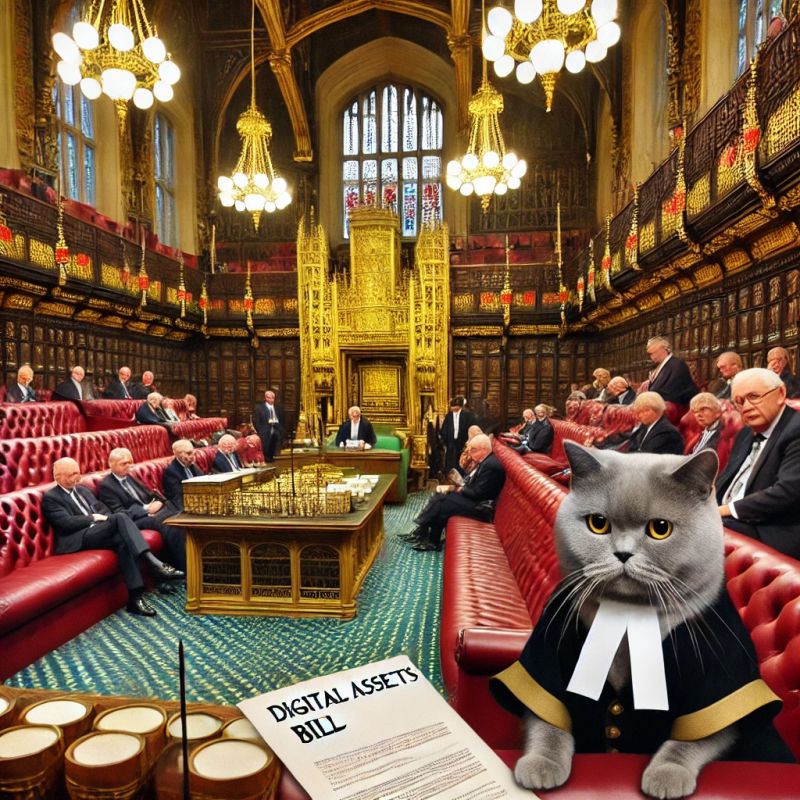
Latest in the D’Aloia Case
Learn more
September 5, 2023
Last Updated: October 15, 2024

In the rapidly evolving digital landscape, legal frameworks are constantly being tested and evolving.
The question of whether cryptocurrency can be held on trust is gaining significant attention, and recent developments shed light on this question.
A notable case that captured the spotlight is ByBit Fintech Limited v Ho Kai Xin (hereafter, “ByBit”) in Singapore.
This case, along with comparable scenarios in other common law jurisdictions, has sparked discussions about the property nature of cryptocurrency and its potential to be held on trust.
Here, the owner of ByBit, a crypto exchange, owner took legal action against an employee who had misappropriated USDT (Tether), a fiat-backed stablecoin pegged to the US Dollar, in addition to fiat currency.
The central question was whether USDT could be classified as property and therefore subject to a constructive trust.
The Singapore High Court’s verdict held that USDT qualifies as a chose in action, a type of property that can be the subject of an enforcement order.
The Court’s rationale rested on several factors:
1. Singapore’s Monetary Authority’s proposal to implement segregation and custody rules for digital payment tokens, implying the practical identifiability and segregation of digital assets, rendering them suitable for trust.
2. Cryptocurrency’s acknowledgment as property in the Singapore Rules of Court, permitting enforcement orders.
3. Crypto’s definable and tradable nature, aligning with the criteria for property defined in the National Provincial Bank v Ainsworth case.
4. The expansion of the category of things in action over time to include diverse types of incorporeal property, showcasing its adaptability and inclusiveness.
In a significant move, the Singapore Court recognised that crypto assets embody an incorporeal right of property, thus enabling their enforceability in court as things in action.
Consequently, the Court imposed a constructive trust over the misappropriated crypto assets, setting a significant legal precedent.
English law has also had to navigate similar questions.
In Zi Wang v Graham Darby the English courts established that individual cryptocurrencies, such as Tezos, can indeed constitute property subject to trust.
The case involved a disagreement between cryptocurrency traders and deliberated over whether a trust was formed. While the existence of a trust wasn’t unanimously accepted, the principle that cryptocurrencies can be deemed property was firmly established.
However, asserting that crypto exchanges inherently operate as constructive trustees is nuanced. A subsequent case underscored that this proposition must be approached carefully, depending on individual circumstances.
The acknowledgment that cryptocurrency is property, particularly choses in action, brings further clarity the legal position.
This recognition impacts on asset tracing, enforcement, protection in insolvency cases and tax.

Andy has a breadth of experience as a Barrister and as a Chartered Tax Advisor, which means he comes into the crypto space with expertise he can't wait to share.
Learn more"*" indicates required fields
Want to join the community? View our range of packages with exclusive perks!
It’s not complicated. The best way to avoid bagholding is by staying informed. The best way of staying informed is by listening to the expert.
Andy has a wealth of experience and knowledge designed to help you navigate the crypto tax world, whether you’re in a bull run, sitting on uncomfortably large profits, or planning for the next halving.
Exclusive access
Exclusive access to one of the brightest minds in Crypto
Expert advice
Expert advice on preserving wealth, estate planning, wills, and so much more
International network
Connections to an international network of professional tax advisors

October 12th, 2024

September 12th, 2024

August 20th, 2024

August 2nd, 2024

June 17th, 2024

April 24th, 2024

April 4th, 2024

March 20th, 2024

March 20th, 2024

March 20th, 2024
Got a question or query about our community? Reach out now and we will get back to you soon.
"*" indicates required fields





